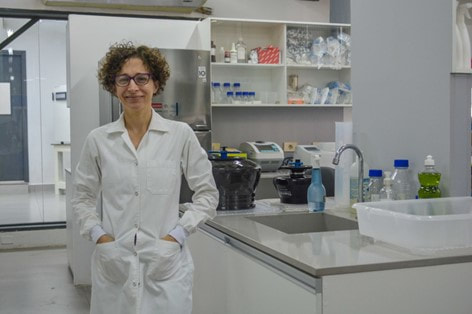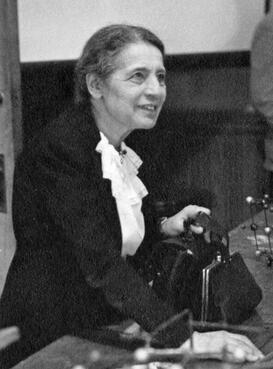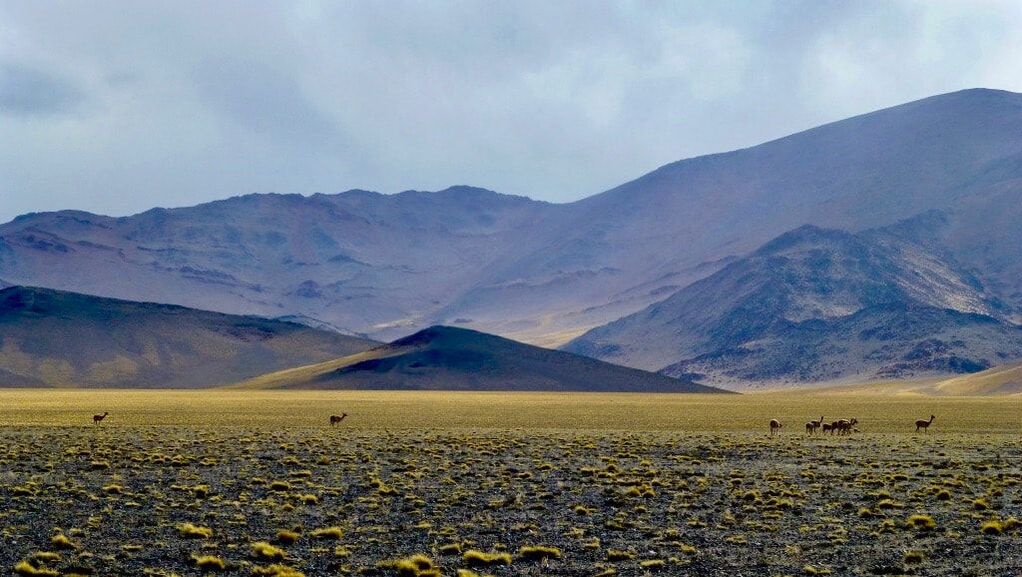|
A new Jovian exoplanet was recently discovered by Dr. Thayne Currie and team, using a one-of-a-kind technique which could forever change the way we hunt exoplanets. By Johina Maria Edited by Lauren Koenig A massive, gaseous planet 16 times the size of Jupiter and located far beyond our solar system was recently detected by scientists using a telescope on the peak of Hawaii’s tallest volcano. The discovery was dubbed a Jovian exoplanet due to its location outside the solar system and its Jupiter-like qualities -- the cloudy planet is enormous and appears to be made of gas.
By Lucía Achucarro Rosalind Franklin is undoubtedly one of the biggest names in science. Most remembered for her discovery of DNA’s double helix structure, her multi-disciplinary approach to research is one to emulate. Franklin combined her love for chemistry with complex mathematical analyses and used X-ray crystallography as an experimental tool to provide the missing piece of the DNA puzzle. Her findings forever changed our understanding of how life works. Now, 70 years later, Dr. María José Fernández is continuing Franklin’s legacy by embracing a similar multidisciplinary approach to her research in DNA topology – the study of how DNA strands are intertwined. Fernández has modernized Franklin’s discoveries by combining mathematical analyses and coding to further advance the field. Dr. María José Fernández
(Credit: Matías Nicolás del Barco Portillo, Marketing Department of the Communication Department of the FP-UNA) By Priya Binwal Physicist Lise Meitner, lecturing at Catholic University, Washington, D.C., 1946. Credit: Wikimedia Commons In the summer of 1938, a petite woman aged 59 arrived at the German-Dutch border, with 10 Deutsche Marks in her purse, a few summer clothes in her suitcase, and a diamond ring she had acquired only a few hours ago. Her name — Lise Meitner.
By Lucía Achucarro When we think about some of the biggest scientific questions that remain unsolved in the 21st century, we might think about Dark Matter, Quantum Entanglement, and even The Multiverse - concepts that the majority of us might feel distanced from on a daily basis. But what if I told you that amongst those abstract ideas, something as natural and familiar to us as aging can be found on that list? To this day, aging remains one of the biggest mysteries in science.
By Lauren Koenig
The 2020 hurricane season has seen a record number of named storms brew over the Atlantic and the most intense tropical cyclone in history to hit the Philippines. With the hurricane season still not over, new meteorological disasters on top of an unremitting pandemic add up to a perfect storm in an already overwhelming year of events. By Lauren Koenig Have you ever been asked if you’re more of a night owl or a morning lark? The choice might actually be a trick question. Scientists are learning that many species are going about their day (and night) far differently than once thought. Mountain lions in Argentina, who typically grab a bite under the cover of darkness, are hunting more during the day and boldly out in the open, according to new research led by Dr. Justine Smith published August 27 in Ecology.
11/8/2019
Believe in What You DoBy Khola Abid Gender bias has been affecting women's scientific and academic contributions for decades; however, today’s scenario is different as many organizations are working to empower the women in STEM, like, Association for Women in Science and Scientista. These types of associations are helping incredible female scientists shift the paradigm and increase visibility and awareness of their groundbreaking work.
I had the opportunity to interview Dr. Raysa Khan, who shared thoughtful insights about how she navigates the academic world. Graduating top of her class in Pharmaceutical and Medicinal Chemistry from Nottingham Trent University, Raysa joined the Spencer Lab for her PhD. She received the PhD presentation first prize at the Sussex Annual Research Colloquium in 2017. Combining scientific curiosity with dedication and hard work, Raysa is pursuing this work with the hope of making an impact in cancer research.
By Lidiya Angelova
“For most of history, Anonymous was a woman." Virginia Woolf Antibiotics are a ubiquitous part of our lives today. However, antibiotics have only been around since the late 1920s, when they were first discovered and applied to clinical practice. Streptomycin was the second clinically effective antibiotic after penicillin, the first medicine capable of defeating tuberculosis, and was at the center of a major patent controversy.
By Dr. Vijayalakshmi (Viji) Kalyanaraman
Lithium-ion (or Li-ion) batteries rule the world of mobile devices. However, they are still in their infancy when it comes to powering up automobiles. Higher capacity and long lasting life are the keys to exploit them in automobile industry. Why is developing high performance Li-ion batteries a challenge?
By Iqra Naveed
It is an undeniable fact that science is intertwined with every domain of life on earth. Hence, it is imperative to effectively communicate science to the layman. As a result, science writers come into limelight for the purpose of educating their audience about science with utmost clarity. It is not easy to become a commendable science writer but provided the right direction and with a lot of practice, one can achieve it. So, Hamza and I had the honor to speak to Marcia Bartusiak who helped us gain some insights into her life as a science writer. |
Archives
February 2023
DiscovHER BlogScientista DiscovHER is a blog dedicated to discovHERies made by women in science. Follow us for links to the latest resHERch! Categories
All Alexandra Brumberg Amy Chan Avneet Soin Chemistry Diana Crow Engineering Health/medicine Indulekha Karunakaran Iqra Naveed Johanna Weker Lidiya Angelova Michael Clausen Mind Brain And Behavior Muhammad Hamza Waseem Nikarika Vattikonda Opinion Prishita Maheshwari-Aplin Technology Uma Chandrasekaran |
The Network for Pre-Professional Women in Science and Engineering
The Scientista Foundation is a registered 501(c)(3) -- Donate!






 RSS Feed
RSS Feed